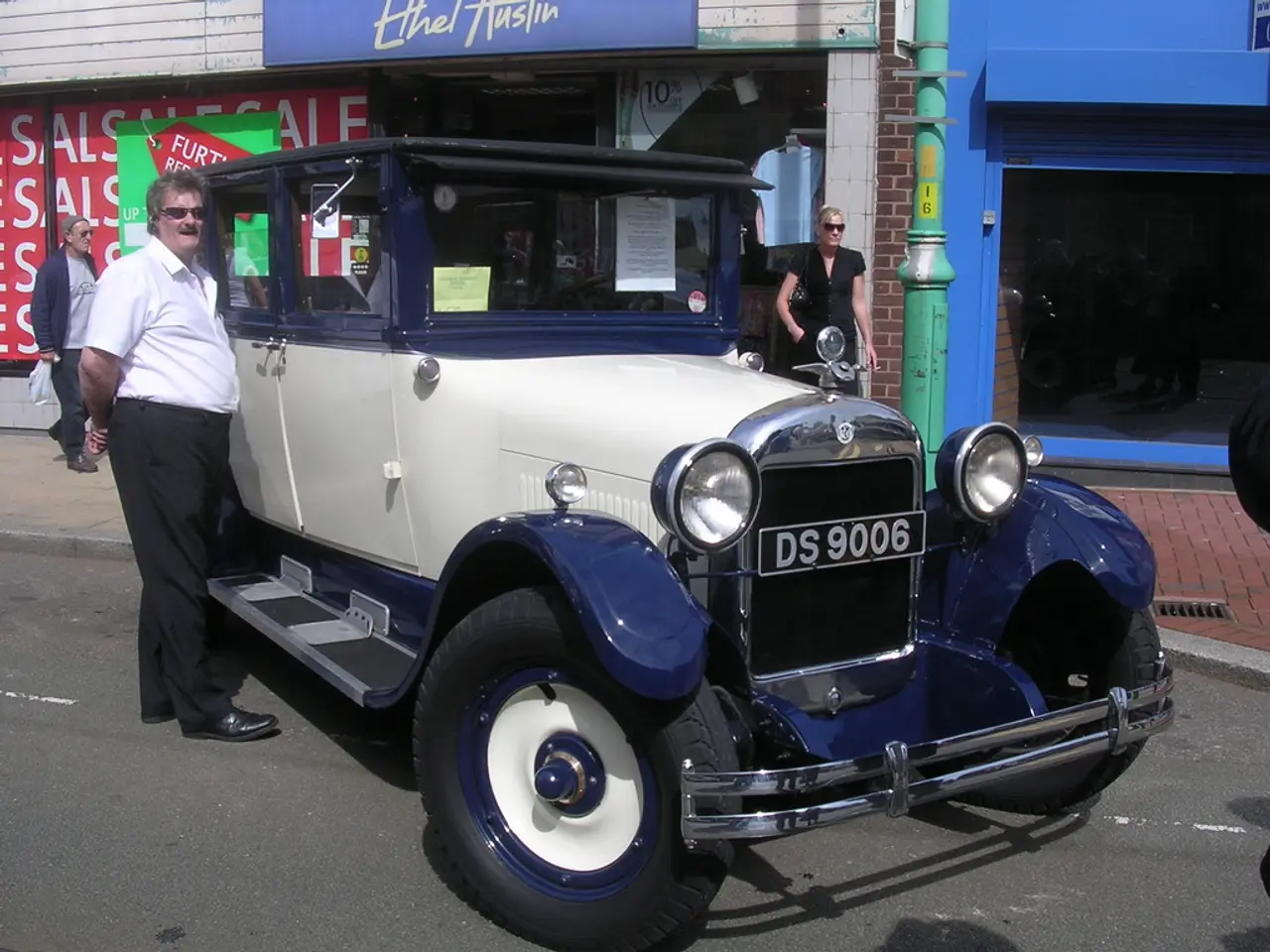Struggles at Car Dealerships and Outdated Automobile Regulations Boost Popularity of Tesla's Model Y and Direct Sales, Potentially with Effective Amendments Offered as Solutions
=============================================================================
In the rapidly evolving world of electric vehicles (EVs), a longstanding issue persists in some states: dealership franchise laws that require all automakers to sell through franchised dealerships, even when those dealerships have little interest in selling EVs.
These laws, originally designed to protect existing dealer networks and ensure consumer protections, have significant implications for both EV manufacturers and consumers.
For manufacturers like Tesla and Rivian, these laws limit their ability to sell vehicles directly to consumers, a practice favored for reducing costs and controlling the buying experience. Instead, they may face legal and operational hurdles, or be forced to work with or establish franchised dealerships.
On the consumer side, franchised dealerships can lead to higher prices and less convenience, as they add another layer of markup and may have limited EV expertise compared to direct manufacturers. This can slow market adoption of EVs and complicate the purchasing process, with extra steps or limited vehicle availability.
In states where dealership laws are enforced, customers must complete their purchases online, finalize paperwork across state lines, and wait for delivery without ever taking a test drive.
However, there are alternatives emerging. Services like KeySavvy act as a licensed dealer to facilitate private party car sales, making used EVs eligible for the federal used EV tax credit in many cases. In states with restrictive dealership laws, KeySavvy expands the market for used electric vehicles, making them more accessible and appealing.
Advocates for clean energy support direct sales of electric vehicles, as it supports climate goals and consumer choice. Forward-thinking policies are making it easier for drivers to embrace cleaner transportation, while outdated laws in some states still protect legacy systems.
In states like California, Oregon, Idaho, Arizona, Nevada, and most of the West, drivers can buy electric vehicles directly from the companies that build them, without middlemen. This direct access to EVs makes it easier for people to make the switch, as consumers benefit from clarity, convenience, and the ability to explore vehicles in person before making a decision.
EV startups offer showrooms that are calm, informative, and focused entirely on the customer's experience, with no haggling. Direct-to-consumer sales have drastically reduced Tesla's costs, as they don't have to pay for a massive dealership infrastructure or commissions to third-party dealer organizations.
Automotive dealers earn most of their profits from servicing and maintaining vehicles, not from selling cars. Electric vehicles reduce service needs, causing some dealer groups to resist a shift to all-electric cars.
The direct-to-consumer sales model offers a transparent, no-haggle experience that many buyers find refreshing. As the U.S. EV market transitions, many states are calling for reform to allow EV manufacturers to sell directly to consumers, as it is one of the simplest and most effective ways to accelerate EV adoption.
Anyone who wants to see fairer, simpler access to EVs can make a difference by reaching out to local legislators, sharing experiences, and supporting organizations working to modernize dealership laws. With no dealerships acting as gatekeepers, buyers can have a conversation, not a sales pitch.
Technology plays a crucial role in the evolution of the electric vehicle market, as innovative companies like Tesla and Rivian leverage technology to reduce costs and improve the buying experience. Meanwhile, sports cars are commonly associated with traditional internal combustion engines, but the emergence of high-performance electric sports cars, such as the Tesla Roadster, is pushing the boundaries of what technology can achieve in the arena of sports vehicles.




